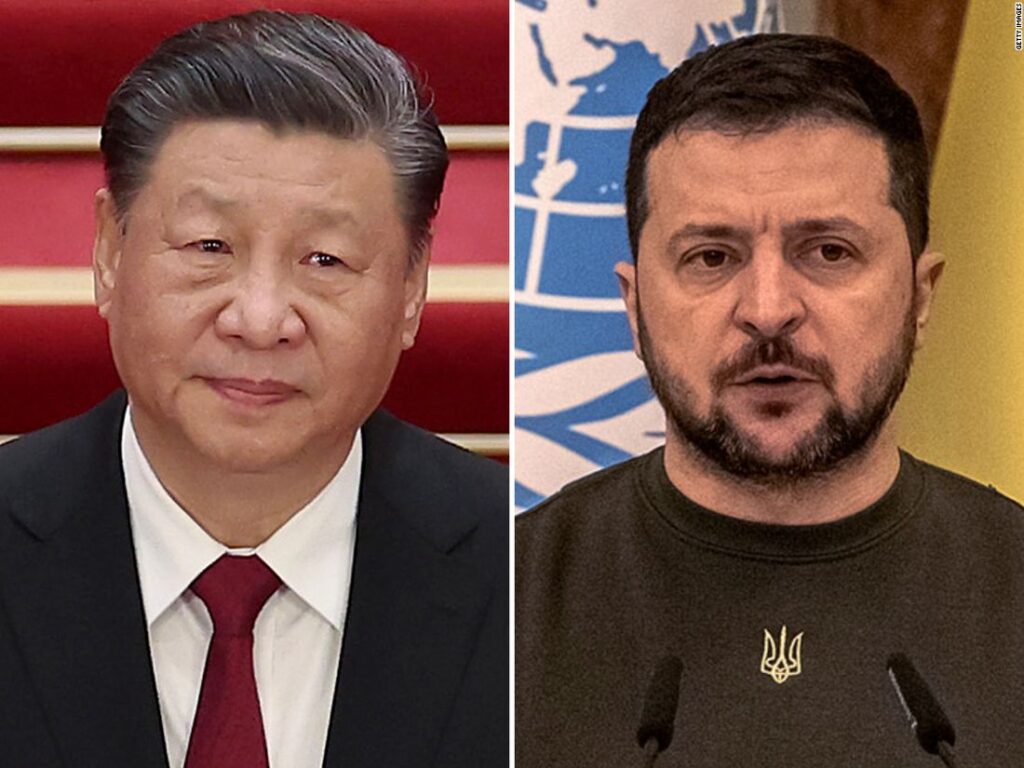WASHINGTON DC: It has been more than one year since Russia launched its invasion of Ukraine. In all that time, Chinese President Xi Jinping has not spoken to Ukrainian President Volodymyr Zelenskyy nor criticised Russia’s actions.
So what brought about the almost one-hour-long call between the two leaders on Wednesday (Apr 26)?
It comes about a month after Xi’s visit to Moscow, meeting Russian President Vladimir Putin to deepen ties, though Xi barely mentioned the war. China had issued a 12-point peace plan in February, which basically amounted to a call for a ceasefire and negotiations, drawing lukewarm reactions.
SHORING UP DIPLOMATIC CREDIBILITY
Has China left behind its “wolf warrior” approach to international relations? Perhaps so, except in regard to the United States.
China recently gained some diplomatic credibility as a global problem-solver by successfully mediating between Saudi Arabia and Iran. But its continued uncritical backing of Russia meant Europe would still see China as encouraging global instability.
European mistrust of China has only increased in recent days after China’s ambassador to France seemed to question the sovereignty of nations that arose from the breakup of the Soviet Union. This not only angered the European Union (and especially EU members that are ex-Soviet states) but also nations in Central Asia where China and Russia have long battled for resources and influence.
To counteract this, Xi needed to do something to demonstrate that China accepts the sovereignty and legitimacy of Ukraine as an independent country. If China could at least be seen to try to resolve the Ukraine war, perhaps the renewed ties created between the US and Europe might fray.
LOW-RISK ACTIONS NO THREAT TO XI-PUTIN RELATIONSHIP
But calling for negotiations and sending an envoy are low-risk actions. Xi is unlikely to put his relationship with Putin at real risk. A weakened and isolated Russia is a source of cheap resources and a good ally against the US.
Even if Xi is willing to use real political capital to force Putin to withdraw Russian forces from eastern Ukraine, what could China offer towards a peace settlement?
Troops to enforce a ceasefire and Russian withdrawal while also standing guard along Crimea (assuming Ukraine was willing to accept Crimea as lost to Russia)? Major investment into Ukraine to restore damaged infrastructure? Enforcing some Chinese economic sanctions against Russia?
All seem unlikely; but perhaps even offers could help China’s international image.
CREATING FAVOURABLE CIRCUMSTANCES FOR TALKS
Still, it is not for nothing that Zelenskyy has long sought to speak with Xi, hoping to reduce China’s support for Russia. Creating more favourable circumstances for Ukraine and Russia to agree to talks will inevitably be needed to end the war.
And though China has saved billions on cheap Russian oil and coal, a long protracted war that Russia is not guaranteed to win won’t be in China’s long-term interests either. And a path to the negotiation table from his “dear friend” Xi could offer Putin a way to engage in the process without losing face.
China’s Ukraine peace plan was almost universally seen as lacking substance, ambition and utility. Zelenskyy called it “interesting” to avoid insulting China and encourage Xi to engage further.
This telephone call is the second effort by China to appear relevant and helpful. Hopefully, this time there will be a real and sincere effort by China to help achieve peace.
Source : CNA


